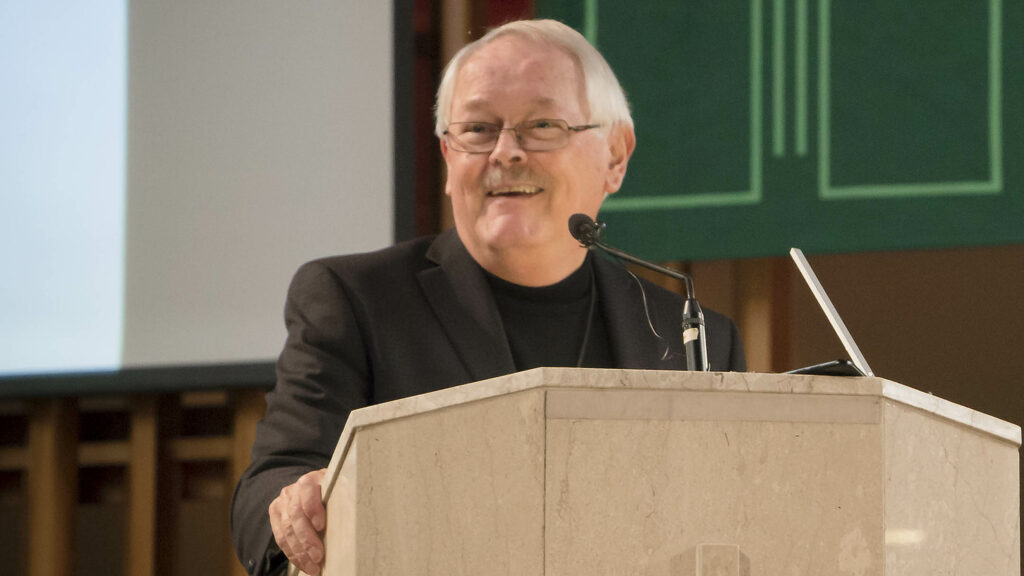In 1986, Czechoslovakian novelist Ivan Klima published a series of autobiographical essays entitled, My First Loves. These essays describe some of his moral struggles as a young agnostic seeking for answers without any explicit moral framework within which to frame those struggles. He’s a young man, full of sexual passion, but hesitant to act out sexually, even as all his peers, men and women, seemingly do not share that same reticence. He remains celibate, but isn’t sure why; certainly it’s not for religious reasons since he’s agnostic. Why is he living as he is? Is he being responsible or is he simply uptight and lacking in nerve?
He’s unsure and so he asks himself: if I died and there is a God and I met that God, what would God say to me? Would God chastise me for being uptight or would God praise me for carrying my solitude at a high level? Would God look at me with disappointment or would he congratulate me for going without consolation?
As he writes this book, Klima doesn’t know the answer to that question. He’s not sure what God would say to him and whether at any given moment God is smiling or frowning upon him.
Irrespective of the answer, what’s insightful here I believe, is how Klima frames his moral choice. For him, it’s not a question of what’s sinful or not, but rather a question of carrying his solitude and tension in a way that makes for nobility of soul.
At first glance, of course, that can seem self-serving; trying to be special can also make for a pride that’s very judgmental.
However, true nobility of soul isn’t something sought for its own sake but something sought for the good of others. One does not try to be good to set oneself apart from others. Rather one tries to be good in order to create a beacon of stability, respect, hospitality, and chastity for others. This, I believe, can be a second starting point for moral theology and spirituality.
The first starting point, of course, is more basic. It focuses on keeping the Ten Commandments, and most of these begin with a negative warning, “thou shalt not.”
At a base level, moral theology and spirituality are very much identified with ethics, with sorting out what’s right and what’s wrong, what’s sinful and what’s not. However, keeping the Ten Commandments and sorting out what’s a sin and what’s not, while a non-negotiable and critically important endeavor, is to moral theology and spirituality what elementary arithmetic is to higher mathematics, a necessary base, no more. Once that fundamental base has been essentially achieved, the real task starts, namely, the struggle to become big-hearted, to put on the heart of Christ, to become a saint so as to create a better world for others.
Let me risk an earthy example to try to illustrate this.
When I was a seminarian studying moral theology, one day in class we were examining various questions within sexual morality. At one point, the question arose as to sinfulness or non-sinfulness of masturbation. Is this an intrinsic disorder? Seriously sinful or not anything serious? What’s to be said morally about this question?
After weighing the various opinions of students, the professor said this:
I don’t think the important question is whether this is a sin or not. There’s a better way of framing this. Here’s where I land on this question: I disagree with those who say it’s a serious sin, but also disagree with those who see no moral issue here whatsoever. The issue here is not so much whether this is a sin or not; rather it’s a question of what level, compensatory or heroic, we want to carry this tension. In the face of this issue, I need to ask myself; at what level do I want to carry my solitude? How noble of soul can I be? How much can I accept to carry this tension to make for a more chaste community inside the body of Christ?
At this second level, moral theology and spirituality cease being a command and become an invitation, one to a greater nobility of soul for the sake of the world.
Can I be more big-hearted? Can I be less petty? Can I carry more tension without giving in to compensation? Can I be more forgiving? Can I love a person from whom I’m separated by temperament and ideology? Can I be a saint?
Saints don’t think so much in terms of what’s sinful and what isn’t. Rather they ask, what is the more loving thing to do here? What’s more noble of soul and what’s more petty? What serves the world better?
In the Synoptic Gospels, Jesus begins his preaching with the word Metanoia, a word that implies infinitely more than what’s connoted in its English translation, Repent.
Metanoia is an invitation to put on a higher mind, to be more noble of heart, and to leave paranoia, pettiness, and self-gratification behind.

